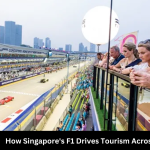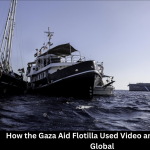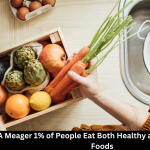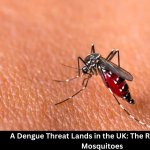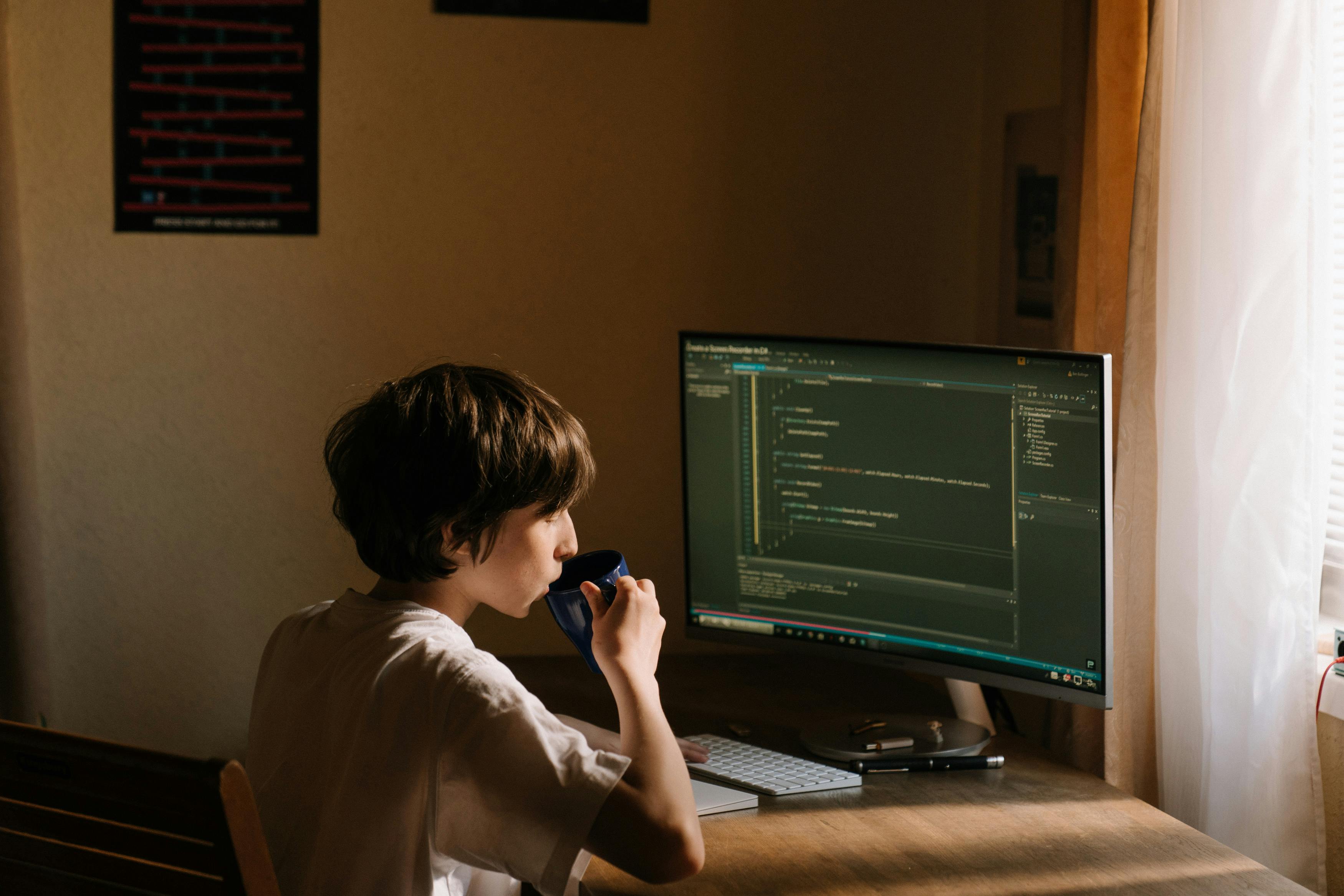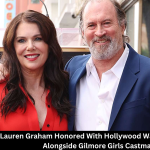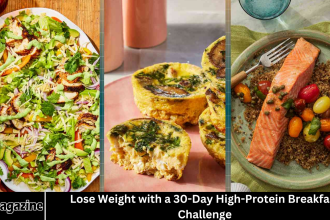In a case that sits at the devastating intersection of alternative medicine, digital influence, and parental responsibility, a UK coroner has delivered a sobering verdict.
- The Case: Key Figures and the Timeline of a Tragedy
- The Coroner’s Findings: A Verdict of “Adverse Influence”
- The Broader Context: The Pervasive Danger of Medical Misinformation Online
- Parental Responsibility vs. Patient Autonomy: An Ethical Minefield
- Lessons to Be Learned: A Call for Action
- Frequently Asked Question
- Conclusion
The ruling stated that a health blogger, a mother, “adversely influenced” her own daughter’s cancer treatment, ultimately contributing to the young woman’s premature death.
This tragic story is more than a personal family disaster; it is a stark, real-world example of how misinformation, even when spread with good intentions, can have fatal consequences.
More Read: Labour MP: Restoring Rural Trust Starts with Animal Health
The Case: Key Figures and the Timeline of a Tragedy
The central figures in this heartbreaking story are a mother, a passionate advocate of alternative health and natural living, and her daughter, a young woman with her whole life ahead of her.
The Diagnosis:
The daughter, whose identity is protected, was diagnosed with a form of cancer that, according to medical experts testifying at the inquest, had a high probability of successful treatment with conventional oncology.
Standard treatment would typically involve a combination of therapies such as surgery, chemotherapy, and/or radiotherapy. The prognosis, had she followed this path, was hopeful.
The Influence of “Wellness” and Alternative Advice:
Instead of pursuing this recommended course, the daughter, influenced heavily by her mother’s deeply held beliefs, began to refuse conventional treatment.
The mother, who maintained a popular blog and social media presence, espoused a philosophy that framed traditional cancer treatments as “poisonous” and “profit-driven.” She promoted a range of alternative therapies, including:
-
Radical dietary protocols: Such as exclusive raw food or extreme juicing diets claimed to “starve” cancer.
-
High-dose supplements and herbal regimens: Unproven and potentially interacting dangerously with any remaining medical treatments.
-
Bio-energetic and detoxification therapies: Methods that lack scientific validation.
The inquest heard that the mother actively discouraged her daughter from listening to oncologists, creating an “echo chamber” of alternative advice that drowned out the voices of medical professionals.
The Deterioration and Death:
As the cancer progressed unchecked, the daughter’s condition deteriorated rapidly.
By the time the family sought emergency medical help, the disease was too advanced. She passed away, a death the coroner concluded was “contributed to by neglect,” in the sense that the neglect of conventional medical treatment was a direct factor.
The Coroner’s Findings: A Verdict of “Adverse Influence”
The coroner’s court is a fact-finding institution, not a criminal one, but its rulings carry immense moral and social weight.
The key conclusion was stark: the mother, through her role as a health influencer and parent, had “adversely influenced” her daughter’s decisions regarding her medical care.
This specific phrasing indicates that the coroner believed the daughter’s autonomy was compromised. She was not making a fully independent, informed choice but was instead swayed by the authority and ideology of a trusted parent.
The ruling highlighted the profound power dynamic at play, questioning whether a patient can truly give informed consent to forgo life-saving treatment when under the coercive influence of a belief system championed by a caregiver.
The Broader Context: The Pervasive Danger of Medical Misinformation Online
This tragedy is not an isolated incident. It is a symptom of a much larger, global crisis: the rampant spread of medical misinformation online.
1. The Allure of the “Natural” Cure:
The alternative health community often markets itself as a gentle, natural, and empowering alternative to what it portrays as a harsh, impersonal, and corrupt medical establishment.
For a frightened cancer patient, the idea of “healing with food” or “detoxing” can seem far more appealing than the side effects of chemotherapy. This narrative preys on fear and offers a false sense of control.
2. The Dangers of Confirmation Bias and Echo Chambers:
Social media algorithms are designed to show users content they agree with.
A person searching for “natural cancer cures” will quickly be funneled into an echo chamber of blogs, videos, and support groups that reinforce these beliefs, while systematically discrediting scientific evidence. This creates a closed system where dissenting medical voices are dismissed as part of the “conspiracy.”
3. The Exploitation of Vulnerability:
The wellness industry is a multi-billion dollar sector. Sadly, many unscrupulous actors profit from the desperation of the sick by selling expensive, unproven supplements, courses, and protocols.
This case raises uncomfortable questions about the financial incentives behind some alternative health advice, even when it comes from a parent who may genuinely believe in what they are promoting.
Parental Responsibility vs. Patient Autonomy: An Ethical Minefield
This case plunges into a complex ethical dilemma. At what point does parental guidance become harmful coercion?
-
For Minors: The law is clear. Parents have a legal responsibility to provide life-saving medical care for their children. Denying such care can lead to charges of medical neglect.
-
For Adult Children: The situation becomes murkier. Adults have the right to refuse medical treatment, even if that decision leads to their death. However, this case probes the limits of that autonomy. When a parent, a figure of immense authority and trust, uses their influence to steer an adult child away from evidence-based care based on misinformation, is the decision truly autonomous? The coroner’s findings suggest that in this instance, it was not.
Lessons to Be Learned: A Call for Action
To prevent future tragedies like this, a multi-faceted approach is urgently needed:
1. For Social Media Platforms:
There must be a greater onus on platforms to demote or label content that promotes demonstrably false and dangerous medical advice. While freedom of speech is vital, it should not extend to allowing misinformation that costs lives.
2. For Healthcare Professionals:
Doctors and nurses need enhanced training in compassionate communication.
They must learn to engage with patients exploring alternative options without immediate dismissal, which can push patients further into the arms of online gurus. Building trust is key to countering misinformation.
3. For the Public and Critical Thinking:
We must improve digital and health literacy. The public needs tools to critically evaluate online sources, question sensationalist claims, and understand the difference between anecdotal testimonials and large-scale, peer-reviewed scientific evidence.
4. For Families:
Open, non-judgmental communication within families facing a medical crisis is crucial. It’s important to research together, involve doctors in conversations, and be wary of any source that demands complete rejection of conventional medicine.
Frequently Asked Question
What exactly happened in this case?
A UK mother, who was also a prominent health and wellness blogger, influenced her adult daughter to refuse conventional, medically recommended cancer treatment (like chemotherapy). Instead, she promoted alternative therapies like radical diets and supplements. The daughter’s cancer progressed, and she later died. A coroner’s inquest concluded that the mother had “adversely influenced” her daughter’s decisions, contributing to her death.
Was the daughter a minor or an adult?
This is a key and complex part of the case. The daughter was a young adult, meaning she was legally old enough to make her own medical decisions. However, the coroner’s ruling highlighted that her autonomy was compromised by the “adverse influence” of her mother, blurring the line between personal choice and coercive influence from a trusted authority figure.
What was the coroner’s official ruling?
The coroner delivered a conclusion that the daughter’s death was “contributed to by neglect.” This does not mean criminal negligence in this context, but rather that there was a gross failure to provide adequate medical care—in this case, the refusal of the life-saving treatment that was offered. The specific finding was that the mother, through her alternative health beliefs and online platform, “adversely influenced” her daughter’s cancer treatment decisions.
Was the mother criminally charged?
Based on public reports, the mother was not criminally charged in relation to her daughter’s death. The coroner’s inquest is a fact-finding process to determine the circumstances of a death, not a criminal trial. For a criminal charge like manslaughter to be considered, prosecutors would need to prove gross negligence, which is a very high bar, especially when the patient was an adult who ostensibly made her own choices.
What kind of alternative treatments did they pursue?
While the full list may not be public, testimony indicated the blogger promoted a range of unproven, non-conventional therapies. These typically included:
- Extreme dietary protocols (e.g., raw food-only, intensive juicing) claimed to “starve” cancer.
- High-dose supplements and herbal regimens.
- Various “detoxification” and bio-energetic therapies that lack scientific validation for treating cancer.
Why would someone refuse proven cancer treatment?
This is driven by several powerful factors:
- Fear of Side Effects: Conventional treatments like chemotherapy are harsh, and the “wellness” industry often frames them as “poisonous.”
- Misinformation Online: Social media algorithms can create echo chambers that amplify alternative health claims while discrediting established medicine.
- Sense of Control: Pursuing natural remedies can feel more empowering and less passive than undergoing hospital treatment.
- Trust in a Parent: The daughter’s trust in her mother’s beliefs ultimately overrode the recommendations of medical professionals.
What are the broader implications of this case?
This tragedy has sparked important conversations about:
- Medical Misinformation: It highlights the real-world, fatal danger of anti-science and anti-medicine rhetoric spread online, even by well-intentioned individuals.
- Influencer Responsibility: It raises ethical questions about the responsibility of health influencers, who often have no formal medical training, when giving life-or-death advice.
- Patient Autonomy: It challenges the concept of informed consent, asking whether a choice is truly free if it’s based on coercion and misinformation from a trusted source.
Conclusion
The death of this young woman is a profound and preventable tragedy. While the mother undoubtedly believed she was acting in her daughter’s best interests, her adherence to an alternative health ideology had fatal consequences.
The coroner’s verdict of “adverse influence” serves as a grave warning to the burgeoning wellness industry and to all of us navigating the complex digital health landscape.


